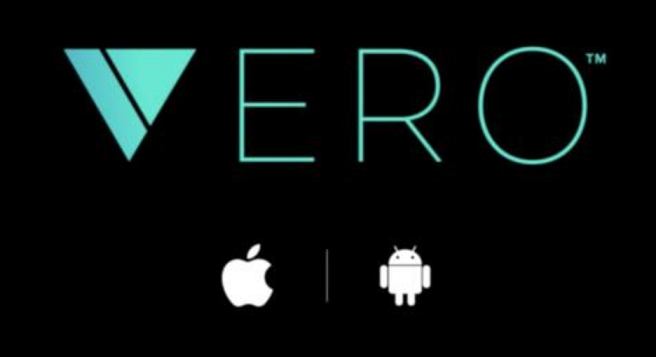If you hear about “Vero”, the latest social media app you might have some questions. This application promises to be a social media app, but, interesting, with less social media in it. Vero has been launched back in 2015 but didn’t get too much attention until a few weeks ago. This social media application got a considerable attention boost in the last month, and it became popular because it is like Facebook, but it’s missing the ads, it’s like Instagram, but it doesn’t have an algorithm, it’s also similar with YouTube and Twitter, but without all the fuss related to ads, algorithms, patterns, etc.

Basically, this app allows you to share text, images, videos and app’s name has a special meaning: it means “truth” in the Esperanto language. Vero aims to be the most authentic social media app out there on the market, it’s free at the moment, and the developers promise that they will not use ads for monetization and that they will not collect various information about their users.
The single criteria for showing content in the post feed is time so that you will see all your friends’ posts just chronologically. No importance, no quality of friendship, no personal interests and engagement analyzed, so what your friends post is exactly what you get. Since this application is free at the moment but boosting (there have been reported more than two million registrations), an annual service charge is planned to be introduced at some point in the future. There are no estimations for the service charge, but we can assume it will not represent a high amount of money. These being said until now, let’s see how Vero really works.
First of all, let’s see who is behind Vero: Lebanese businessman and billionaire Ayman Hariri is Vero’s founder, but the news is not good as he doesn’t have a crystal-clear reputation. Being the son of the former Lebanese Rafic Hariri Prime Minister, they are popular for the high numbers of employees’ complaints related to nonpayment, limited access to water and food and not so fair treatments in labor camps.
At first sight, Vero looks like a reskinned Instagram, with a very long post feed, all sorted by date. There are some audience settings, similar to those on Facebook, this meaning that you can share specific information only within specific groups and for particular users. Selective sharing comes into the spotlight in teenagers’ world, as they can easily share information without their parents seeing it. Intuitively, parents haven’t been pleased about this feature, as it hinders their children monitoring possibilities.
A close examination of this app reveals some glitches, and the information about many developers being Russian, made many to worry, showing concerns regarding data steal and manipulation. Other voices have expressed their worries regarding the terms of service, naming them abusive. At a closer look, they are strongly similar to Facebook ToS, so nothing new here. While signing up is very easy (download the app, go through the sign-up process and then you are ready to post/read your friends’ posts), leaving Vero is not that easy. In order to delete your account, you have to get in touch with one of their representatives, and this is not an easy task at all. There is the possibility to complete a form on their website and make a delete request, but the process is heavy and long.
If you are an early adopter, willing to try an authentic social media app that promises to deliver you clean content and only content from those who you follow and you are interested in, that it might be interesting to give Vero a try. Remember it’s not so easy to delete the account, and it still has many code improvements to be made, but from some points of view, Vero is promising a lot.
So, what’s your take on Vero ?
